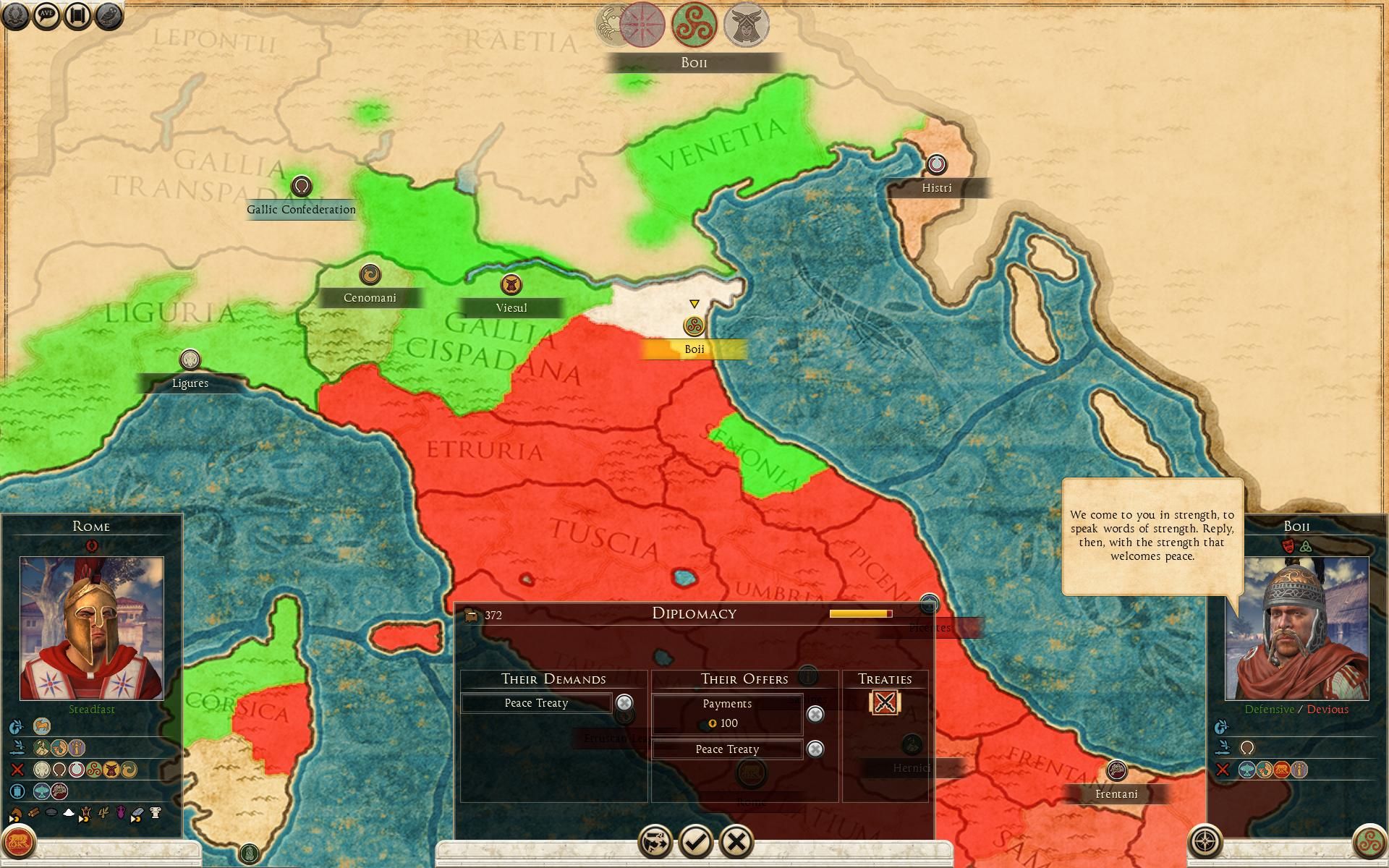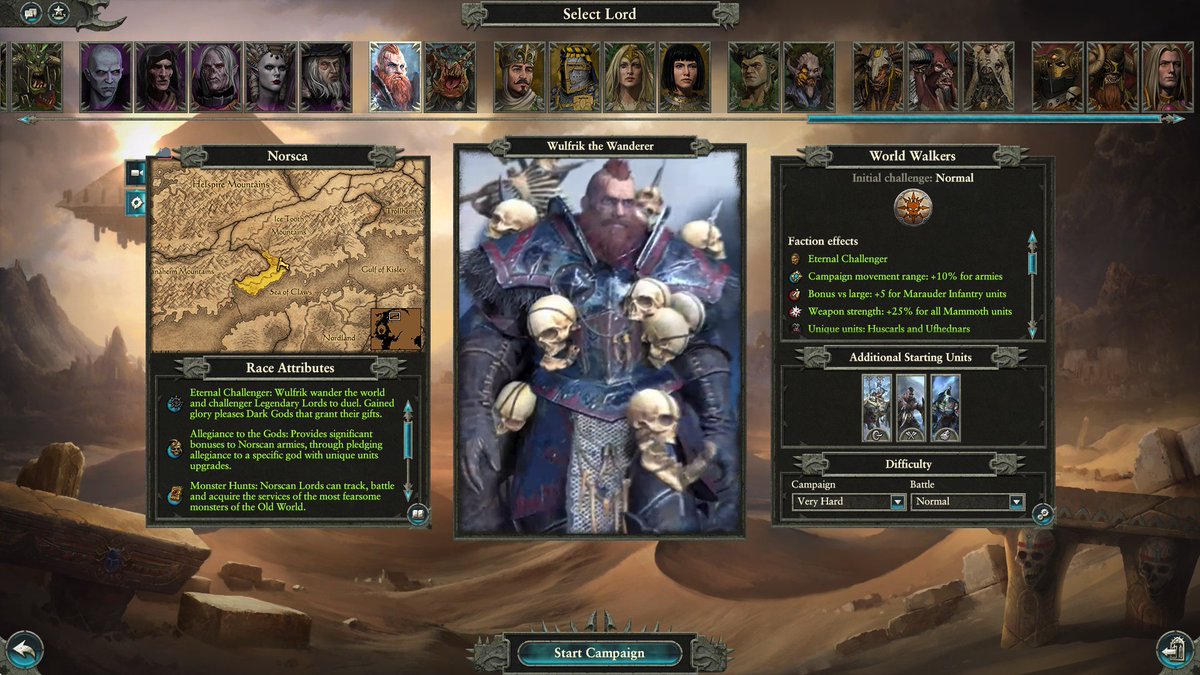
In order to attempt to add some level of smart AI to the decisions, we have variables we can change within the system.

It’s bad because across the many thousands of DeI campaigns, there will be times when the AI does stuff that doesn’t make sense or even seems poorly balanced or designed. It’s good because it means that there are unexpected things that happen in campaigns and campaigns can be different on replaying them. This randomness or “dice roll diplomacy” is both a good and bad thing. These differences are the essence of the random nature of Rome 2. Some of the same may happen, none of it may happen, or totally different results may occur. If you go back and load the save and end turn again, you could easily see completely different things happen. You could even see another faction offer some random agreement that turn.

If you end a turn you may see Faction X declare war on Faction Y or Faction Z break its treaties with you. that it’s impossible to determine in any given campaign what exactly will happen on a turn.īecause of this random nature, any given turn can have different results even if replayed. The game itself has so many possible situations with so many factions, bonuses, modifiers, variables, etc. Sometimes they are bad choices, sometimes they come from nowhere and (hopefully) sometimes they are smart. This has huge ramifications for campaigns because in any given campaign you could see all types of behavior and choices made by the AI. At its core, Rome 2’s CAI and diplomacy are random. In order to understand why we have our system the way it is, we need to start at the foundation of the systems in the game. This guide will be an attempt to explain the system and give some tips on how to navigate diplomacy in 1.2.

A lot has changed in 1.2 on these fronts and it can be frustrating when you don’t understand the system and why certain decisions and changes were made. This guide is here to help those new to DeI 1.2 with the various Campaign AI (CAI) and diplomacy changes.


 0 kommentar(er)
0 kommentar(er)
